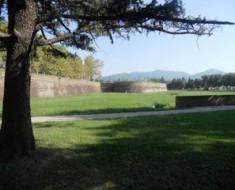Proud of its reputation as the ‘workshop of the world’, Birmingham was originally a small rural manor, the town being established in 1166 with the granting of a market every Thursday. Market-trading became the centre of the town’s development, and whilst agricultural life around it continued, with the advent of the industrial revolution its eventual status as Britain’s second largest city was sealed. James Watts’ invention of the steam engine and Matthew Boulton’s use of gas lighting were two of many inventions influencing manufacturing processes around the world.
Birmingham however suffered from all the defects of that revolution : back-to- back housing with no ventilation, open sewers, low wages and long hours for the workers and, everywhere, grime. No wonder this part of the West Midlands is still called the Black Country. Someone wrote at that time ‘in no town in the world are the mechanical arts more noisy…the people live in an atmosphere vibrating with clamour’.
He added, ‘ it would seem as if their amusement had caught the general tone and become noisy, like their inventions’. (With or without noise, ‘Brummies’ are generally thought of today as naturally cheerful).
Over the years there were many changes, campaigns for better sewage and for the introduction of mass culture and opportunity in the latter part of that century and the next. Just now the city is going through one of its periodic re-builds in the centre after some pretty disastrous planning episodes fifty years ago. Birmingham has a notable political history. Joseph Chamberlain (1836 – 1914) was a campaigner for educational reform in the city and a Liberal who when a local M.P. became a Tory as President of the Board of Trade and then Colonial Secretary. Father of Austen and Neville Chamberlain, he was part of the dynasty of wealthy landowners and industrialists, which included the Cadbury’s, and by whom the city was identified in the rest of the country.
The Victorian period was one of increasing pride in the city with some fine buildings such as the Town Hall, where in the 1970’s I heard many concerts by the City of Birmingham Symphony Orchestra, now in its new home, Symphony Hall. I often attended rehearsals prior to the evening’s performance, discovering that there can be a very robust relationship between conductor (Louis Fremaux in those days) and players. The Art Gallery has one of the finest collections of pre-Raphaelite paintings in the U.K. The old Public Library was inconvenient but beautiful. I watched it as it was pulled down. A man next to me was in tears at what he clearly and rightly regarded as a desecration. Even so, as the city’s website claims, Birmingham is ‘surprising, vibrant, appealing and exciting’ , and I would agree.
Bryan




